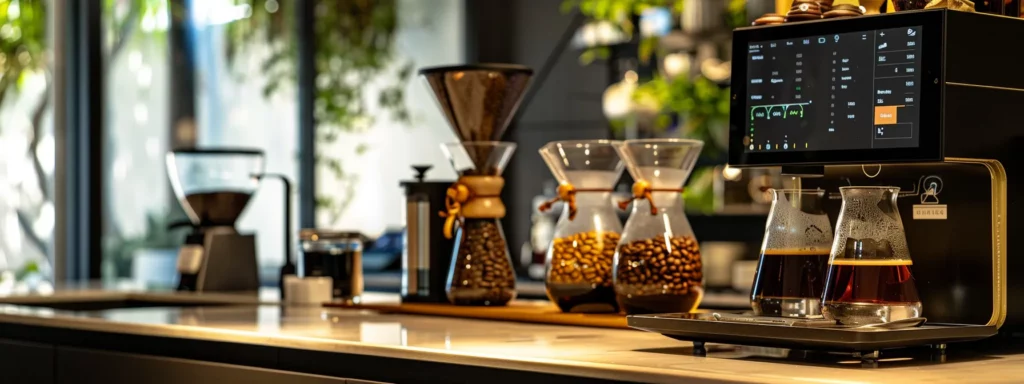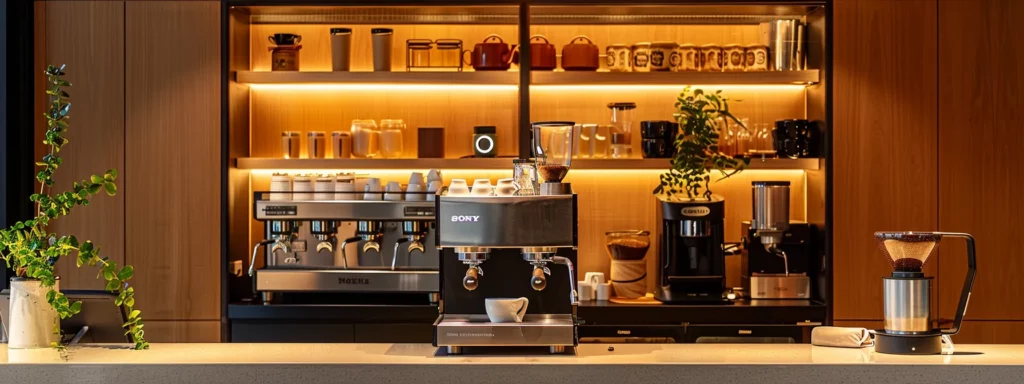
How Much Caffeine Is in Coffee: Understanding Your Daily Intake
Are you confused about how much caffeine is in your daily cup of coffee? This post breaks down the caffeine content per serving, compares commercial brands, and explains key factors that affect caffeine levels. Readers will learn how to balance their intake and avoid unexpected jitters. It targets those seeking to make informed choices and enjoy their daily brew without worry.
Key Takeaways
- brewed coffee gives a smooth taste with balanced caffeine
- espresso provides an intense and concentrated burst of energy
- instant coffee offers reliable caffeine without complex preparation
- decaf coffee allows for enjoyment with a lighter caffeine touch
- brewing methods and bean types influence caffeine content clearly
How Much Caffeine Is in a Normal Cup of Coffee

Brewed coffee, espresso, instant coffee, and decaf are all explained here. This section offers practical insights on how each type affects your daily intake, from managing a headache to concerns like kidney disease and type 2 diabetes, even touching on questions like how many coffees a day is bad. A note on chocolate’s effects is also included.
Brewed Coffee
Brewed coffee delivers a smooth, comforting kick in a warm mug that many appreciate during a busy day. Experts note that a teaspoon of advertising may hint at the charm of this beverage, and techniques like ristretto and careful coffee preparation add layers of taste and balance:
| Coffee Type | Key Attributes |
|---|---|
| Brewed Coffee | Balanced flavor, moderate kick, enjoyed in a mug |
| Ristretto | Concentrated shot, intense taste, creative coffee preparation |
Coffee enthusiasts understand that the caffeine content in brewed coffee varies, providing useful insights for managing daily intake. Practical examples, like comparing a large mug versus a small teaspoon in coffee preparation, offer clarity for those navigating different coffee styles and their effects.
Espresso
Espresso offers a concentrated burst of energy and flavor that stands out from other coffee variations. Experts note that the pressure applied during brewing extracts a distinct caffeine dose, and systematic review data shows that this shot provides a direct way to gauge one’s daily caffeine intake without additional risks associated with overconsumption.
People often compare their espresso habits to tea, which is lighter on caffeine, making it easier to manage intake during the day. Research and practical examples suggest that understanding the pressure involved in espresso preparation and examining the data can help consumers reduce potential risks while enjoying their favorite style of coffee.
Instant Coffee
Instant coffee offers a simple, practical option for those looking to gauge their caffeine intake accurately without the fuss of elaborate brewing methods. Research indicates that this format can provide a consistent stimulant effect, which can be beneficial for keeping a steady heart rate during busy mornings, similar to how white tea offers a milder boost, while scientists note that a subtle flavor of vanilla can enhance the overall experience without interfering with sensitive medication schedules.
Experts point out that instant coffee delivers a reliable caffeine dose in every cup, making it easier for consumers to monitor daily intake and avoid unwanted spikes that may affect heart rate and overall well-being. The straightforward preparation of instant coffee appeals to those who appreciate a no-nonsense approach, akin to enjoying white tea with a hint of vanilla, and provides practical guidance for managing caffeine as part of everyday routines, even for individuals under specific medication plans.
Decaf Coffee
Decaf coffee provides a lighter dose of caffeine compared to regular brews, helping coffee lovers manage their intake without worrying about spikes in blood pressure. Regular decaf options still retain a subtle flavor profile reminiscent of coffea varieties, making it a practical choice for those who enjoy a chill drink with ice or a refreshing twist similar to mixing root beer with a smooth brew.
Experts find that decaf coffee offers a reliable option for those seeking a gentler caffeine kick, easing concerns about the potential impact on blood pressure. This option allows enthusiasts to enjoy a satisfying cup that stays true to the coffea experience while offering a consistent yet measured dose, perfect for unwinding in the heat of summer with ice or enjoying a unique root beer twist.
A regular cup stirs the day with its quiet promise. The reader now meets well-known brands to see if they pack extra strength.
Are Commercial Brands More Caffeinated?

Commercial brands often work with different coffee species, which can affect how much caffeine ends up in a cup. Consumers frequently ask how many coffees a day are safe to enjoy without risking issues like palpitations.
Some producers use carbon dioxide methods during processing, which can influence the caffeine content in the final brew. This becomes a handy detail for those keeping an eye on intake during pregnancy.
The information on coffee processing covers several crucial points:
- Various coffee species affect caffeine levels.
- People wonder how many coffees a day are safe.
- Carbon dioxide methods play a role in extraction techniques.
- There is concern over palpitations when caffeine consumption is high.
- Proper caffeine management is important during pregnancy.
Shoppers and coffee lovers often compare commercial brands with a focus on these aspects to guide their choices. They review details to see how many coffees a day fit their lifestyle without triggering palpitations or other health concerns.
The focus shifts from brand comparisons to the work behind every cup. Ahead, the elements that shape a brew’s caffeine come into clear view.
What Factors Affect Caffeine Content?

Caffeine content in coffee varies due to brewing methods and bean types, which are studied alongside how diet can influence overall intake.
Factors such as water temperature and extraction time are key; the following table shows a brief overview of these elements:
| Factor | Description |
|---|---|
| Brewing Time | Affects caffeine extraction |
| Water Temperature | Steeper temperatures yield more caffeine |
| Bean Type | Different beans offer varying levels of caffeine |
Research on camellia and similar species adds to the understanding of caffeine dispersion, with comparisons often made to black tea in terms of stimulant effects.
Studies by the food and drug administration suggest that coffee’s caffeine role can impact weight loss efforts and overall health, helping consumers adjust their diet smartly.
Caffeine levels play a key role in the flavor and boost of your brew. The next section checks whether that extra kick is something to keep an eye on.
Is Caffeine Something to Worry About?

The coffee connoisseur notes that a barista can easily explain how many caffeine mg in a cup of coffee, making it simpler for consumers to decide their daily limit. The discussion often includes a friendly comparison with cold brew coffee and other blends.
A casual review shows that even a splash of milk in the drink does not greatly alter the caffeine dose, so the key details remain consistent. This straightforward approach helps coffee lovers plan their intake.
Experts mention that caffeine from camellia sinensis offers a well-known alertness boost similar to that from coffee. They keep the focus on clear, practical advice without overcomplicating the topic.
The overall message remains simple, as regular coffee drinkers learn that understanding how many caffeine mg in a cup of coffee can help them enjoy their brew confidently. This clear view encourages a balanced and relaxed approach to caffeine consumption.
The debate changes as the narrative unfolds. A closer look shows remarkable perks waiting in every brew.
Surprising Benefits of Coffee

Coffee’s natural caffeine kick may boost metabolism and provide a steady flow of energy for busy mornings, with the espresso machine making preparation a breeze.
Findings from the mayo clinic highlight that moderate coffee consumption might help lower the risk of disease, and a well-made cappuccino serves as a tasty way to get that energy boost:
- Supports a healthy metabolism
- May lower the likelihood of specific disease conditions
- Provides a smooth, balanced caffeine dose
The caffeine in coffee offers a practical way to stay alert and productive throughout the day, and the ease of using an espresso machine adds to its appeal.
This balanced approach allows coffee enthusiasts to enjoy a satisfying cup, whether they choose a cappuccino or another favorite brew, creating a routine that feels both healthy and enjoyable.
The surprising benefits of coffee raised important questions worth answering. The team then explains exactly how they put every claim to the test.
How We Reviewed This Article

The review process started with a focus on clear measurement criteria, using the aeropress for its precise extraction and noting how weight influences the brew.
The team examined each brewing method, ensuring that taste remained consistent while comparing different techniques such as the aeropress, and the analysis also considered unique flavor aspects like subtle hints of fruit and refined coffee roasting methods:
- Evaluation of extraction methods
- Measurement of weight in brewing
- Analysis of coffee roasting techniques
- Impact on taste and hints of fruit
Experts tracked caffeine levels and taste profiles through tests that included various methods to pinpoint the effects of coffee roasting and precise measurement using devices like the aeropress.
The review maintained a consistent approach by comparing factors such as weight and fruit-like flavor impressions, ensuring every detail contributed to understanding caffeine in coffee and its overall taste appeal.
Essential Key Takeaways for Understanding Our Services and Offerings
Understanding daily caffeine intake empowers coffee lovers to make informed choices about their favorite brews. Different coffee types offer unique caffeine levels that impact both energy and overall well-being. The discussion highlights practical insights, from brewed coffee to decaf, so that consumers can tailor their habits to personal health needs. This clarity encourages enjoyable routines while keeping caffeine consumption in check for a balanced lifestyle.
